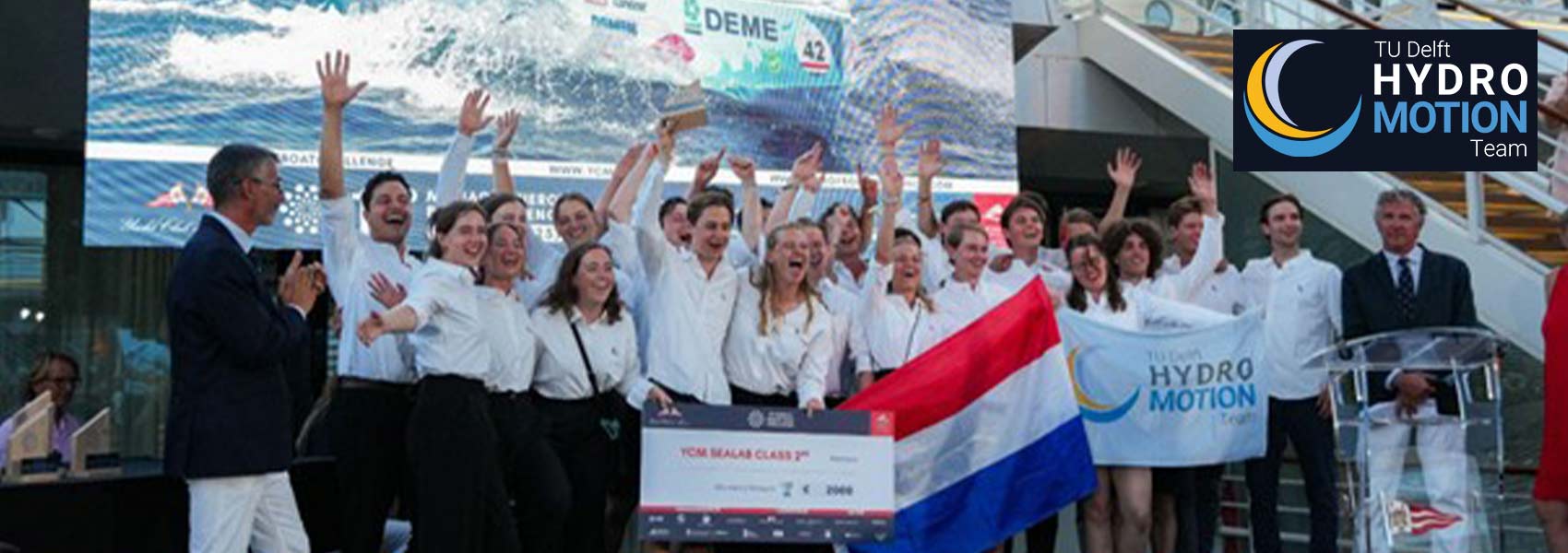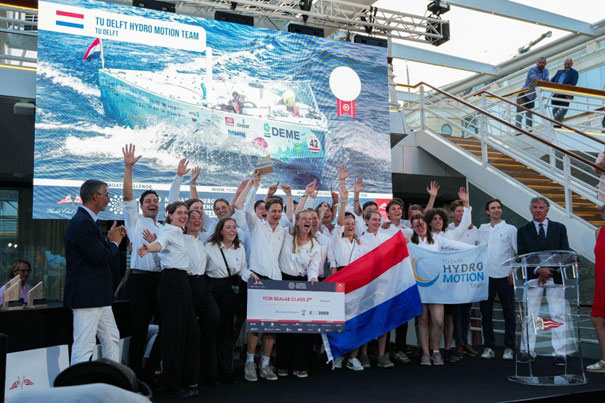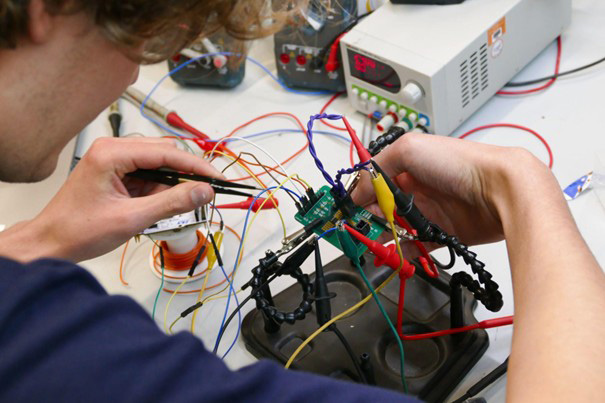Hydro Motion Team Competes at the Front of Hydrogen Innovation

Introduction
The TU delft Hydro Motion team is a group of 25 passionate students who worked the past year on designing, building, testing and racing a hydrogen powered foiling boat. The team showed that they could make a whole new boat within a year and participate in the Monaco Energy Boat Challenge Open Sea Lab. Central to their mission is hydrogen and above all liquid hydrogen, a highly sustainable fuel, which they believe is crucial for the future of the maritime industry. The team had 2 goals, winning the MEBC and making the first steps for implementing liquid hydrogen. They became 2nd in the Monaco Energy Boat Challenge Open Sea Lab, and were able to finish all the races on the boats’ own power. The 2nd challenge was also a success, they successfully tested the liquid hydrogen system outside the boat and worked out that it is possible to be implemented.

A Legacy of Innovation
The team’s roots date back 18 years with the inception of the TU Delft Solar Boat Team. Their journey began in inland waters before venturing into open seas, culminating in their first World Championship victory in 2019. Initially focused on demonstrating the viability of solar power as an alternative to fossil fuels, the team expanded its focus to another green energy source: hydrogen. In 2020, the Hydro Motion project was born, leading to the creation of the world’s first foiling hydrogen-powered boat. The team’s triumph continued as Hydro Motion clinched the 2023 Monaco Energy Boat Challenge Open Sea Class, securing yet another World Championship title. In 2024, the team showed the power and reliability of hydrogen by crossing the north sea.
A Challenging Innovation
The team worked countlessly on implementing liquid hydrogen in the boat but it wasn’t easy, and they didn’t end up having enough time to test it within the boat. However, they did test liquid hydrogen outside the boat. One of the big challenges was that for a long time there were a lot of unknowns. Which made it difficult to design 1 specific type of PCB so they had to think modularly to accommodate for the unknowns. The second difficulty in designing is that liquid hydrogen being really cold needed constant monitoring also during the night and on the road. This gave us a challenging issue designing a PCB which could be fully self sustaining and sending the needed data by satellite communication. In the end they did manage to design this PCB and use it during the liquid hydrogen tests.

Innovative Technology
A significant technological achievement in this project was the development of multiple custom PCBs, all produced by Eurocircuits. These include:
- Steering PCB: The team designed a bespoke steering wheel that integrates all pilot controls, enabling seamless operation of the boat with both hands. The embedded PCB manages a range of signals, operates a built-in display, and communicates with the boat’s systems to control speed, direction, and height. This innovation ensures that the pilot can maneuver the vessel with precision and safety.
- Vehicle Control Unit (VCU): The VCU acts as the brain of the boat, controlling the entire system. It manages communication between various components, ensuring that all systems work in harmony for optimal performance and safety during the journey.
- Cooling PCBs: These PCBs are essential for maintaining optimal operating temperatures for critical components. They ensure that the hydrogen fuel cells and other electronic systems remain cool and efficient, even under demanding conditions.
- Sensor PCBs: These PCBs were important to be able to read out more than 6 different kinds of sensors and translate for the rest of the boat to be able to understand them. This way the boat could correctly control all the different components.
- Liquid Hydrogen PCBs: This PCB did all the control and readout of the liquid hydrogen tank. This PCB had the most innovation being able to work autonomously from any other PCB and being able to send the data gathered to a remote location with satellite communication.
We are very happy that we are able to make the project work with the help of Eurocircuits!

For more information please visit the TU Delft Hydro Motion Team website.





